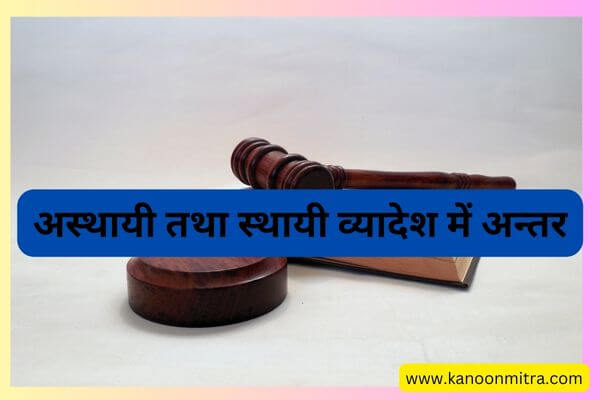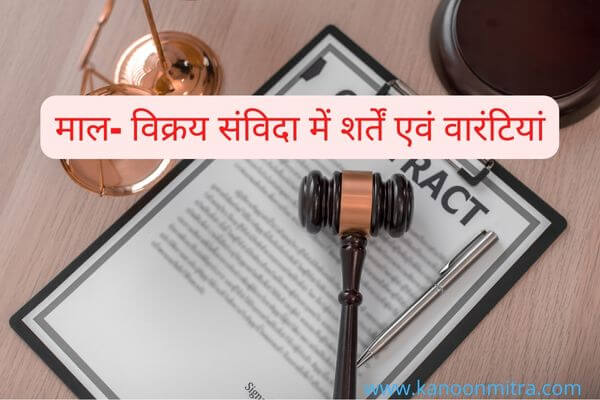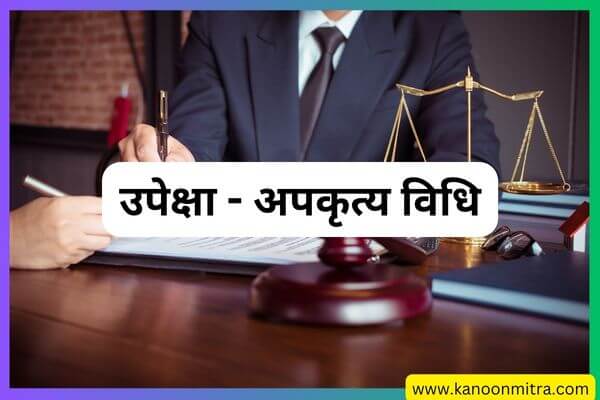धारा 2 एससी एसटी एक्ट :- परिभाषाएं-
(1) इस अधिनियम में, जब तक कि संदर्भ से अन्यथा अपेक्षित न हो-
(क) “अत्याचार” से धारा 3 के अधीन दग्नीय अपराध अभिप्रेत है;
(ख) “संहिता” से दंड प्रक्रिया संहिता, 1973 (1974 का 2) अभिप्रेत है;
(खख). “आश्रित” से पीड़ित का ऐसा पति या पत्नी, बालक, माता -पिता भाई और बहिन जो ऐसे पीड़ित पर अपनी सहायता और भरण पोषण के लिए पूर्णत: या मुख्यतः आश्रित हैं;
(खग). “आर्थिक बहिष्कार” से निम्नलिखित अभिप्रेत है,-
(i). अन्य व्यक्ति से भाड़े पर कार्य से संबंधित संव्यवहार करने या कारबार करने से इन्कार करना; या
(ii) अवसरों का प्रत्याख्यान करना जिनमें सेवाओं तक पहुंच या प्रतिफल के लिए सेवा प्रदान करने हेतु संविदाजन्य अवसर सम्मिलित हैं; या
(iii) ऐसे निबंधनों पर कोई बात करने से इंकार करना जिन पर कोई बात, कारबार के सामान्य अनुक्रम में सामान्यतया की जाएगी; या
(iv) ऐसे वृत्तिक या कारबार संबंधों में प्रतिविरत रहना, जो किसी अन्य व्यक्ति से रखे जाएं ;
(खघ) “अनन्य विशेष न्यायालय”से इस अधिनियम के अधीन अपराधों का अनन्य रूप से विचारण करने के लिए धारा 14 की उपधारा (1) के अधीन स्थापित अनन्य विशेष न्यायालय अभिप्रेत है ;
(खड.) “वन अधिकार” का वह अर्थ होगा, जो अनुसूचित जनजाति और अन्य परंपरागत वन निवासी (वन अधिकारों की मान्यता) अधिनियम, 2006 (2007 का 2) की धारा 3 की उपधारा (1) में है ;
(खच) “हाथ से मैला उठाने वाले कर्मी” का वह अर्थ होगा, जो हाथ से मैला उठाने वाले कर्मियों के नियोजन का प्रतिषेध और उनका पुनर्वास अधिनियम, 2013 (2013 का 25) की धारा 2 की उपधारा (1) के खंड (छ) में उसका है;
(खछ) “लोक सेवक” से भारतीय दंड संहिता, 1860(1860 का 45) की धारा 21 के अधीन यथापरिभाषित लोकसेवक और साथ ही तत्समय प्रवृत्त किसी अन्य विधि के अधीन लोक सेवक समझा गया कोई अन्य व्यक्ति अभिप्रेत है और जिनमें, यथास्थिति, केंद्रीय सरकार या राज्य सरकार के अधीन उसकी पदीय हैसियत में कार्यरत कोई व्यक्ति सम्मिलित है;
(ग) “अनुसूचित जातियों और अनुसूचित जनजातियों” के वही अर्थ है जो संविधान के अनुच्छेद 366 के बैंक (24) और खंड (25) में है;
(घ) “विशेष न्यायालय” से धारा 14 में विशेष न्यायालय के रूप में विनिर्दिष्ट कोई सेशन न्यायालय अभिप्रेत है;
(ङ) “विशेष लोक अभियोजक” से विशेष लोक अभियोजक के रूप में विनिर्दिष्ट लोक अभियोजक या धारा 15 में निर्दिष्ट अधिवक्ता अभिप्रेत है;
(ड.क) “अनुसूची” से इस अधिनियम से उपाबध्य अनुसूची अभिप्रेत है;
(ड.ख) “सामाजिक बहिष्कार” से कोई रुढ़िगत सेवा अन्य व्यक्ति को देने के लिए या उससे प्राप्त करने के लिए या ऐसे सामाजिक संबंधों से प्रतिविरत रहने के लिए, जो अन्य व्यक्ति से बनाए रखें जाएं या अन्य व्यक्तियों से उसको अलग करने के लिए किसी व्यक्ति को अनुज्ञात करने से इंकार करना अभिप्रेत है;
(ड.ग) “पीड़ित” से ऐसा व्यक्ति अभिप्रेत है, जो धारा 2 की उपधारा (1), के खंड (ग) के अधीन ‘अनुसूचित जाति और अनुसूचित जनजाति’की परिभाषा के भीतर आता है तथा जो इस अधिनियम के अधीन किसी अपराध के होने के परिणामस्वरूप शारीरिक, मानसिक मनोवैज्ञानिक, भावनात्मक या धनीय हानि या उसकी संपत्ति को हानि वहन या अनुभव करता है और जिसके अंतर्गत उसके नातेदार, विधिक संरक्षक और विधिक वारिस भी है;
(ड.घ) “साक्षी” से ऐसा व्यक्ति अभिप्रेत है जो इस अधिनियम के अधीन अपराध से अंतर्वलित किसी अपराध के अन्वेषण, जांच या विचारण के प्रयोजन के लिए तथ्यों और परिस्थितियों से परिचित है या कोई जानकारी रखता है या आवश्यक ज्ञान रखता है और जो ऐसे मामले के अन्वेषण, जांच या विचारण के दौरान जानकारी देने या कथन करने या कोई दस्तावेज प्रस्तुत करने के लिए अपेक्षित हैं या अपेक्षित हो सकेगा और जिसमें ऐसे अपराध का पीड़ित सम्मिलित है;
(च) उन शब्दों और पदों के, जो इस अधिनियम में प्रयुक्त हैं किंतु परिभाषित नहीं है और, यथास्थिति, भारतीय दंड संहिता, 1860 (1860 का 45), भारतीय साक्ष्य अधिनियम, 1872(1872 का 1) या दंड प्रक्रिया संहिता, 1973 (1974 का 2) में परिभाषित है, वही अर्थ होना समझा जाएगा जो उन अधिनियमितियों में है।
(2) इस अधिनियम में किसी अधिनियमिति या उसके किसी उपबंध के प्रति किसी निर्देश का अर्थ, किसी ऐसे क्षेत्र के संबंध में जिसमें ऐसी अधिनियमिति या ऐसा उपबंध प्रवृत्त नहीं है, यह लगाया जाएगा कि वह उस क्षेत्र में प्रवृत्त तत्स्थानी विधि, यदि कोई हो, के प्रति निर्देश है।
Section 2 SC ST Act :- “Definitions”–
(a) “atrocity” means an offence punishable under section 3;
(b) “Code” means the Code of Criminal Procedure, 1973 (2 of 1974);
1 [(bb)”dependent” means the spouse, children, parents, brother and sister of the victim, who are dependent wholly or mainly on such victim for his support and maintenance;
(bc) “economic boycott” means–
(i) a refusal to deal with, work for hire or do business with other person; or
(ii) to deny opportunities including access to services or contractual opportunities for rendering service for consideration; or
(iii) to refuse to do anything on the terms on which things would be commonly done in the ordinary course of business; or
(iv) to abstain from the professional or business relations that onewould maintain with other person;
(bd) “Exclusive Special Court” means the Exclusive Special Court established under sub-section (1) of section 14 exclusively to try the offences under this Act;
(be) “forest rights” shall have the meaning assigned to it in sub-section (1) of section 3 of the Scheduled Tribes and Other Traditional Forest Dwellers(Recognition of Forest Rights) Act, 2006 (2 of 2007);
(bf) “manual scavenger” shall have the meaning assigned to it in clause (g) of sub-section (1) of section 2 of the Prohibition of Employment as Manual Scavengers and their Rehabilitation Act, 2013 (25 of 2013);
(bg) “public servant” means a public servant as defined under section 21of the Indian Penal Code (45 of 1860), as well as any other person deemed to be a public servant under any other law for the time being in force and includes any personacting in his official capacity under the Central Government or the State Government, as the case may be;]
(c) “Scheduled Castes and Scheduled Tribes” shall have the meanings assigned to them respectively under clause (24) and clause (25) of article 366 of the Constitution;
(d) “Special Court” means a Court of Session specified as a Special Court in section 14;
(e) “Special Public Prosecutor” means a Public Prosecutor specified as a Special Public Prosecutor or an advocate referred to in section 15;
2 [(ea) “Schedule” means the Schedule appended to this Act;
(eb) “social boycott” means a refusal to permit a person to render to other person or receive from him any customary service or to abstain from social relations that one would maintain with other person or to isolate him from others;
(ec) “victim” means any individual who falls within the definition of the “Scheduled Castes and Scheduled Tribes” under clause (c) of sub-section (1) of section 2, and who has suffered or experienced physical, mental, psychological, emotional or monetary harm or harm to his property as a result of the commission of any offence under this Act and includes his relatives, legal guardian and legal heirs;
(ed) “witness” means any person who is acquainted with the facts and circumstances, or is in possession of any information or has knowledge necessary for the purpose of investigation, inquiry or trial of any crime involving an offence under this Act, and who is or may be required to give information or make a statement or produce any document during investigation, inquiry or trial of such case and includes a victim of such offence;]
3 [(f) the words and expressions used but not defined in this Act and defined in the Indian Penal Code (45 of 1860), the Indian Evidence Act, 1872 (1 of 1872) or the Code of Criminal Procedure, 1973 (2 of 1974), as the case may be, shall be deemed to have the meanings respectively assigned to them in those enactments.]
(2) Any reference in this Act to any enactment or any provision thereof shall, in relation to an area in which such enactment or such provision is not in force, be construed as a reference to the corresponding law, if any, in force in that area.
धारा 2 एससी एसटी एक्ट धारा 2 एससी एसटी एक्ट धारा 2 एससी एसटी एक्ट धारा 2 एससी एसटी एक्ट




